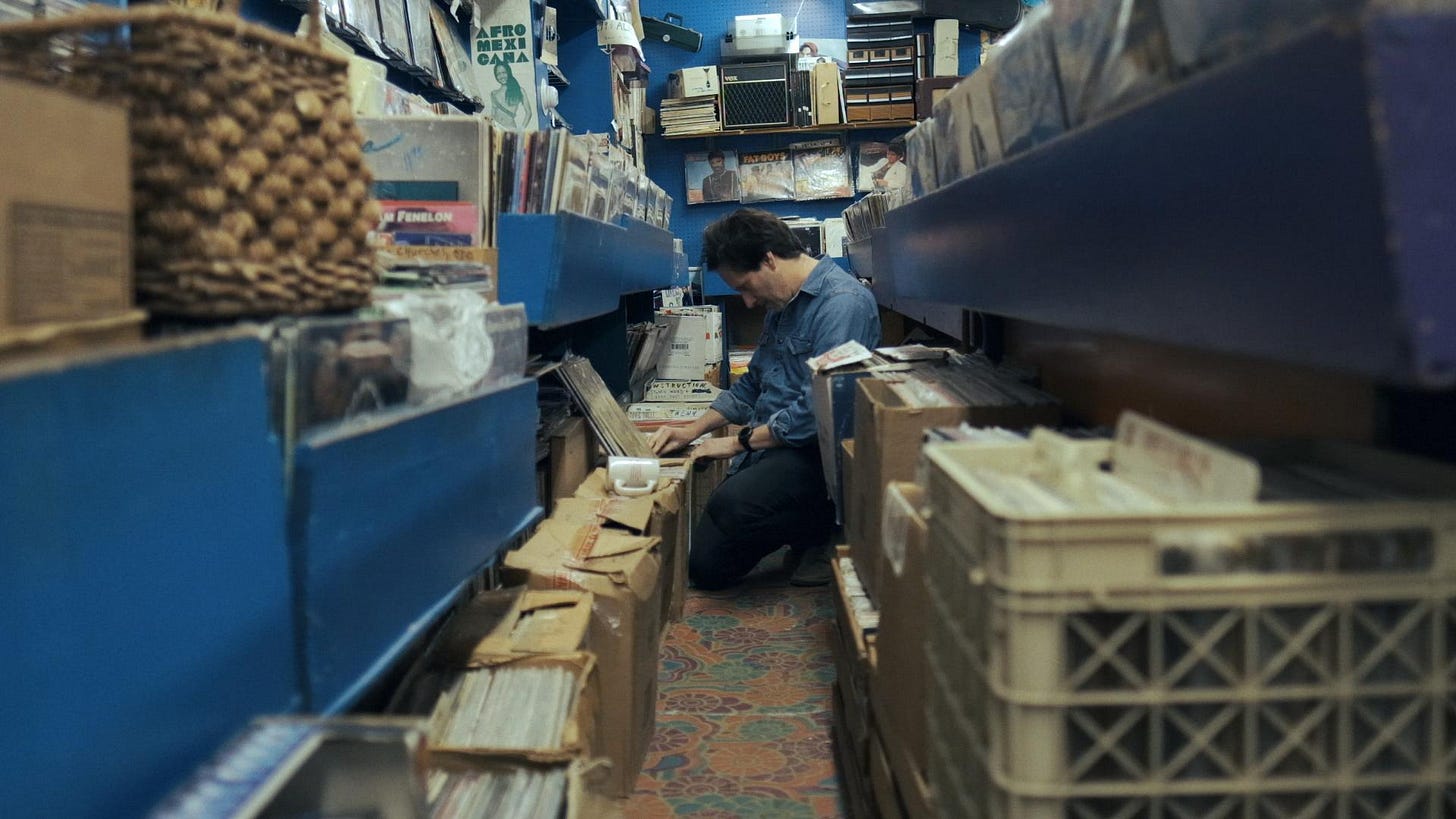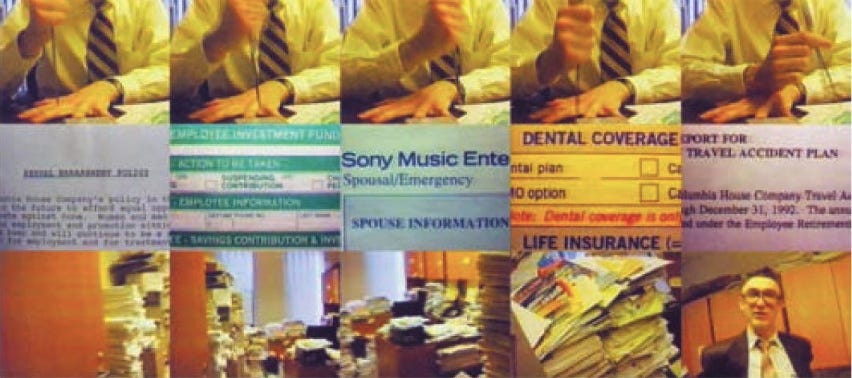Flipside's Chris Wilcha On The Target Shoots First
A 1998 exchange about the debut video from the director of Flipside
Flipside is in theaters now from Oscilloscope Laboratories. It hasn’t opened theatrically in Chicago yet, but when it played at the eleventh Chicago Critics Film Festival, I wrote, “Chris Wilcha’s beautiful Flipside, in which a lifetime of unfinished work is brought together in a singular weave, similar, yet dissimilar to Errol Morris’ editing exemplar, Fast, Cheap & Out Of Control. It’s so much more than a rummage through a junk drawer: Flipside is a collage of good intentions and good subjects that fell by the wayside, yet still stick in a creative mind, never abandoned, certainly not forgotten. Still: letting go. The glimpses of a creative life show that process is not procrastination, and every second counts (even if it only truly counts decades later).”
Here’s another fragment: from 1998, my conversation, previously offline, with Wilcha about his first film, The Target Shoots First. Google indicates
The revolution will be merchandised
Christopher Wilcha was 23 in 1993, a punk rock fan and philosophy major fresh out of college, when he took an entry-level job at the New York office of the Columbia House Record Club. His bosses at the Sony-Time Warner-owned mail-order machine loved him—corporate needed kids who could explain youth culture to them, such as how to peddle thousands more Nirvana CDs. As a graduation present, his parents had given him a Hi-8 camera, which he dutifully took to work each day.
"During my two years of employment," the now-28-year-old, Brooklyn-based Wilcha says, "I collected over 200 hours of footage by taping every single day in the workplace. After quitting, I went to the Film-Video program at the California Institute of the Arts, and it took me the first year at grad school just to watch and log all of the tapes. I also quickly realized that Hi-8 tape is extremely fragile and unstable: one viewing and dropout and distortion occurs. It was my worst techno-pomo, existential nightmare—just by watching the tapes, I was ruining the footage."
Still, the final result is the invigorating The Target Shoots First. It's an amazing peek into the world of the modern office, chronicling jaw-droppingly inane meetings, petty political intrigues, lunches, parties, and many varieties of boredom. Office corridors are photographed as abandoned landscapes. Facial expressions tend to the dulled and alienated. Wilcha is also a gangly, unprepossessing presence on camera. Remarkably, his motives weren't questioned. "All that mattered was that I was doing my job— if taping had somehow disrupted that, there would have been a problem. I also wasn't openly cynical. I didn't articulate any personal angst or ambivalence about the job to my boss —I saved that for the movie."
His coworkers got used to it. It wasn't as if he were making a real documentary. "I was an insider, working at the company while simultaneously shooting. In a typical meeting, I would be taping while also taking notes about the $1.99 CDs Factory Clearance Insert Production schedule. The act of taping was inconspicuous. If I were a third-party filmmaker, coming in to document this particular office culture, I probably would have made everyone way more self-conscious. As to why they let me tape—I guess I was so persistent yet unobtrusive that everyone stopped caring."
After editing, the material seemed much different than it did at the time. "First, everything in it is totally dated. Alternative rock was dead on the vine. Nirvana was a Trojan horse that brought us... I don't know, Bush, or whatever. The club business has also totally changed—you don't have to send those cards back anymore. The tape is a document of an obsolete direct-mail business model. And so many of the issues that seemed important at the time, like selling out, cashing in, are irrelevant to a lot of bands and musicians now. Having a song used in an advertisement is part of the marketing plan, not part of the problem."
Wilcha is back at Columbia House. "I returned to New York and needed a job. They heard I was back and called. As much as I didn't want to return to the company, there were some cold, hard economic facts that had to be faced post-grad school. I've been back since March. I'm in a totally new position that involves Web stuff and what are referred to as 'special promotions.’”
After finishing The Target Shoots Back, Wilcha only showed it to a few of the people who appeared in the tape. Then it was accepted into the New York Video Festival. "I assumed my firing would coincide with the NY screening, he says. "I had nothing to lose, so I gave a copy to the CEO and Executive VP. My timing couldn't have been better. That week, Columbia House merged with CDNow, an online music retailer. The people in upper management were dealing with lawyers and press releases and interviews. They were completely distracted and oblivious to my screening. Eventually, the CEO told me that he watched it and 'didn't agree with a few things' I had to say, but confessed to being entertained. I don't think they totally comprehend that I'm showing it outside the confines of my living room. As of today, I still work there. Maybe they'll find this on the Web and fire me."




